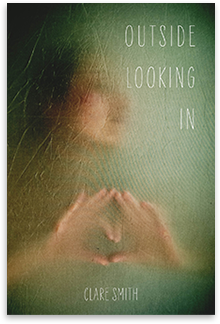
How I Became a Poet
My blogs to date have focused on real life, rather than poetry. I should put that right now. I started life as a poet when I was around 16 and produced mounds of juvenilia that I copied lovingly into a hardback notebook, which I painstakingly covered in special paper, pouring over the punctuation and basically doing everything but focusing on the writing.
I got busy with adult life later, but still found myself more or less forced every now and then to put things down in writing, trying always, I think, to reduce, to somehow find the perfect sentence –possibly even the perfect single word – to sum up whatever complex event or emotion or change I needed to describe.
And still I fussed over the punctuation, seeing how a comma, a dash or a full stop could create different emphasis or pace or could even change meaning.
I read poetry always and have several treasured books – from Wilfred Owen to Carol Ann Duffy. And one I’ve lost. A beautiful cloth-bound green book, with barely-there line drawings illustrating the poems, the lines as spare and full of meaning as the words. It was a French poet writing in English about nature and the lived world, and I loved their poems. But somewhere in my many house moves, it disappeared.
I never had any formal education about poetry – beyond school exams. So in 2020, when the Norfolk and Suffolk Foundation Trust (the local mental hospital to you and me) offered three creative writing classes to former patients, to be run by a professional, I signed up. John Row’s philosophy turned out to be simple – and so very hard. Just do it.
The starters dwindled over the weeks to a mere handful but John, amazingly, offered to carry on with us. Eventually, after months of working together every week, we gave ourselves a name – East Coast Poets – and began to spread our wings.
Two of us set up their own websites, one holds open mic nights in their local pub, one publishes on Instagram, and last summer all of us read our poetry at several festivals. And John is editing an anthology of our work which he’ll publish soon.
So what have I learned about poetry? We’ve discussed different styles – haikus, sonnets, limericks, couplets, stanzas, syllable and rhyming forms – and John’s introduced us to a bewildering range of poets from America to Jamaica, the Victorians to the Beat Poets and more.
But the key thing he’s shown us is that the difference between a poet and someone who wants to be a poet is this: poets are the people who write. He encourages us to spend ten minutes in every meeting writing something – anything – by giving us a word or phrase to start us off. Sometimes people produce a whole poem, sometimes a rant, sometimes only a line or two. We’ve banned the word ‘sorry’ – no apologies before we read out whatever we’ve written. And mostly we manage to do that. And he gives us a word or phrase to write about for the following week. Some of us have fallow spells, some of us get busy doing other things, but each week some of us produce and read things we’ve written which always leave us feeling better, even when they’re tough words to hear.
It was because of how John and the other poets greeted the words I’d written that I summoned up the courage to submit my work to a publisher and it was John and the others who helped me keep my spirits up through all the ups and down which I guess is every author’s lot.
So I’m going to finish with their names – you might like to check out their work.
Emma Brookes, The Norfolk Dumpling – https://www.facebook.com/thenorfolkdumpling/?ref=py_c.
Steve Branch, The Norfolk Rhymester – https://www.thenorfolkrhymester.com/
Jody Lee, the Skinny Poet – https://www.instagram.com/skinnypoet/?hl=en
John Row, host of https://worldstorytellingcafe.com/
Post Views : 241